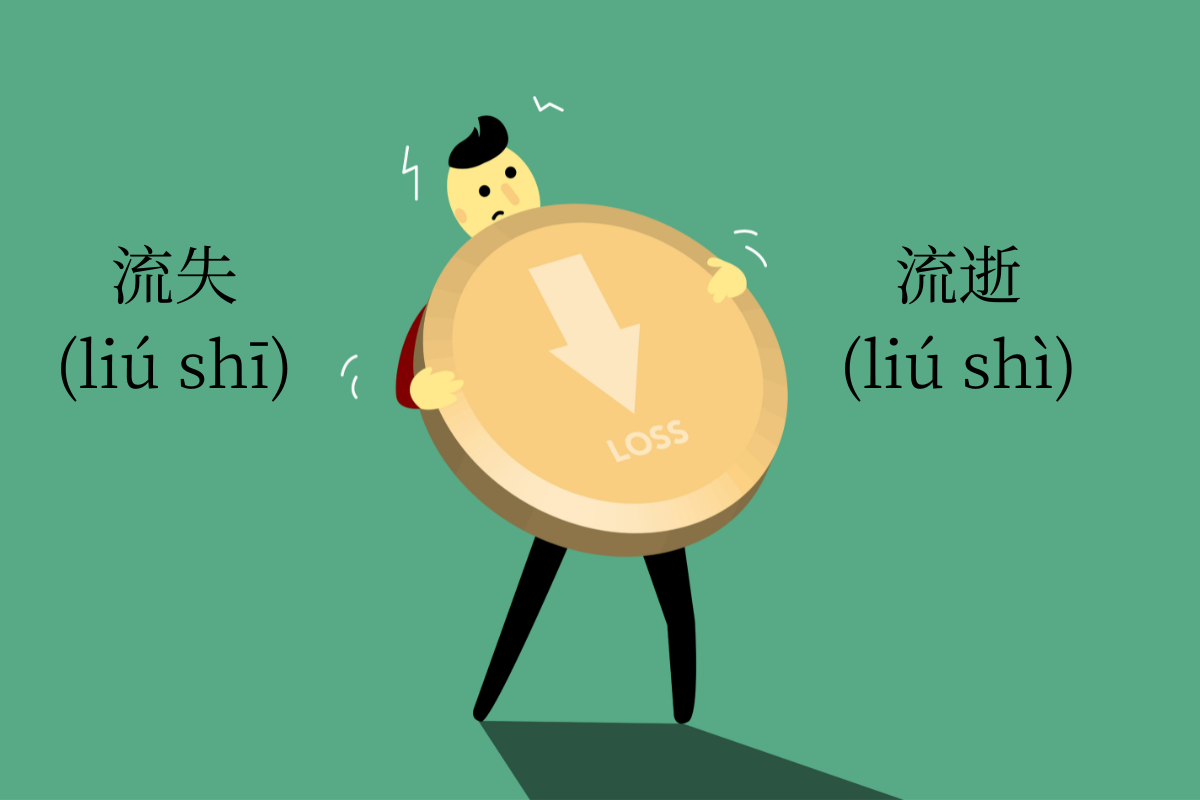HSK Words: 流失 (liú shī) VS 流逝 (liú shì)
In Chinese language learning, the HSK words 流失 (liú shī) and 流逝 (liú shì) are often confused by learners. While both words can be used to describe the passage of time or the fading away of something, they carry distinct meanings that set them apart. In this article, we will explore the nuances between these two words by examining their definitions and examples of usage.

流失 (liú shī) typically implies a loss or a disappearance of something over time. It can be used to describe the loss of resources, water, or any other material that is no longer present or available.
Examples:
- A large amount of groundwater has been lost due to the lack of attention to the protection of water resources.
由于不注重保护水资源,大量的地下水被流失。
yóu yú bù zhù zhòng bǎo hù shuǐ zī yuán , dà liàng de dì xià shuǐ bèi liú shī 。 - Land erosion leads to loss of soil nutrients and affects crop growth.
土地侵蚀导致土壤养分流失,影响农作物生长。
tǔ dì qīn shí dǎo zhì tǔ rǎng yǎng fēn liú shī , yǐng xiǎng nóng zuò wù shēng zhǎng 。 - The company has lost a lot of customers in recent years.
近年来,该公司流失了很多客户。
jìn nián lái , gāi gōng sī liú shī le hěn duō kè hù 。
流逝 (liú shì), on the other hand, implies the passing of time or the fading away of something over time. It often suggests a sense of change or the passing of an era or a period of time.
Examples:
- Time flies, and another year has come and gone.
时间流逝,又一年过去了。
shí jiān liú shì , yòu yī nián guò qù le 。 - The memories of my childhood are fading away with time.
随着时间的流逝,我童年的记忆也在渐渐消失。
suí zhe shí jiān de liú shì , wǒ tóng nián de jì yì yě zài jiàn jiàn xiāo shī 。 - Those good memories become precious with the passage of time.
那些美好的回忆随着时间的流逝而变得珍贵起来。
nà xiē měi hǎo de huí yì suí zhe shí jiān de liú shì ér biàn de zhēn guì qǐ lái 。
In summary, 流失 (liú shī) and 流逝 (liú shì) are two distinct words in Chinese. 流失 (liú shī) implies a loss or disappearance of something over time, while 流逝(liú shì) suggests the passing of time or the fading away of something over time.
Quiz: Please consider whether to use 流失 (liú shī) VS 流逝 (liú shì) in the following sentences.
- 森林砍伐导致土壤侵蚀,进而造成土地资源的______。
sēn lín kǎn fá dǎo zhì tǔ rǎng qīn shí , jìn ér zào chéng tǔ dì zī yuán de ______。 - 工厂的污水排放导致河流中的宝贵资源不断______。
gōng chǎng de wū shuǐ pái fàng dǎo zhì hé liú zhōng de bǎo guì zī yuán bù duàn ______。 - 时间的______是无声无息的。
shí jiān de ______ shì wú shēng wú xī de 。
Answers:
- 流失 (liú shī)
- 流失 (liú shī)
- 流逝 (liú shì)